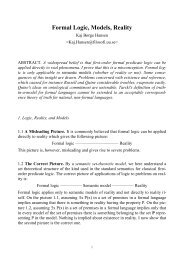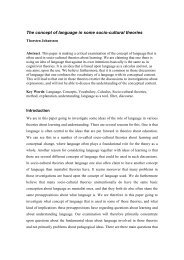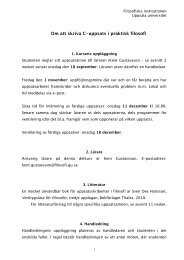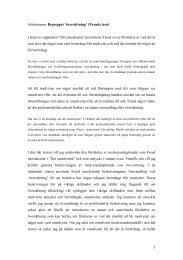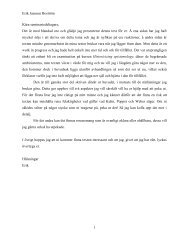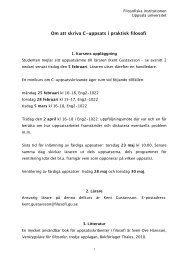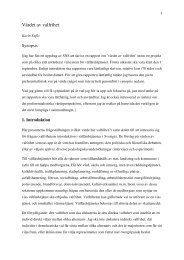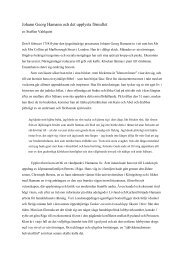1 Dewey, Wittgenstein, and Linguistic Instrumentalism My paper ...
1 Dewey, Wittgenstein, and Linguistic Instrumentalism My paper ...
1 Dewey, Wittgenstein, and Linguistic Instrumentalism My paper ...
You also want an ePaper? Increase the reach of your titles
YUMPU automatically turns print PDFs into web optimized ePapers that Google loves.
come about that we now go by the sign-post; not what this going-by-the sign really<br />
consists in” (op. cit.). If our practice is not socially satisfactory, those empowered to<br />
enforce the laws may pursue <strong>and</strong> punish infractions. The institutional social practice<br />
called courts will decide the correct interpretation. Those who cannot acquire the habits<br />
of some customary practice will find themselves more or less ostracized from the<br />
society or repeatedly punished by it. 17<br />
So far, we still have only a partial connection between <strong>Wittgenstein</strong> <strong>and</strong> <strong>Dewey</strong><br />
regarding customs <strong>and</strong> practice. I believe a <strong>Dewey</strong>an underst<strong>and</strong>ing of habits helps us<br />
better underst<strong>and</strong> what <strong>Wittgenstein</strong> is up to in his discussion of customs. For <strong>Dewey</strong>,<br />
“habits are arts,” that is they “involve skill of sensory <strong>and</strong> motor organs, cunning or<br />
craft, <strong>and</strong> objective materials” (15). Habits are embodied know how:<br />
But after all, this practical work done by habit <strong>and</strong> instinct in securing prompt<br />
<strong>and</strong> exact adjustment to the environment is not knowledge, except by cou rtesy.<br />
Or, if we choose to call it knowledge—<strong>and</strong> no one has the right to issue an ukase<br />
to the contrary—then other things also called knowledge, knowledge of <strong>and</strong> about<br />
things, knowledge that things are thus <strong>and</strong> so, knowledge that involves reflection<br />
<strong>and</strong> conscious appreciation, remains of a different sort . . . . For it is a<br />
commonplace that the more suavely efficient a habit the more unconsciously it<br />
operates. (MW 14: 124-125)<br />
What we have here is the distinction between “knowing that” <strong>and</strong> “knowing how.”<br />
Habits are the means of knowing how, which is why <strong>Dewey</strong> declares: “Concrete habits<br />
do all the perceiving, recognizing, imagining, recalling, judging, conceiving <strong>and</strong><br />
18



